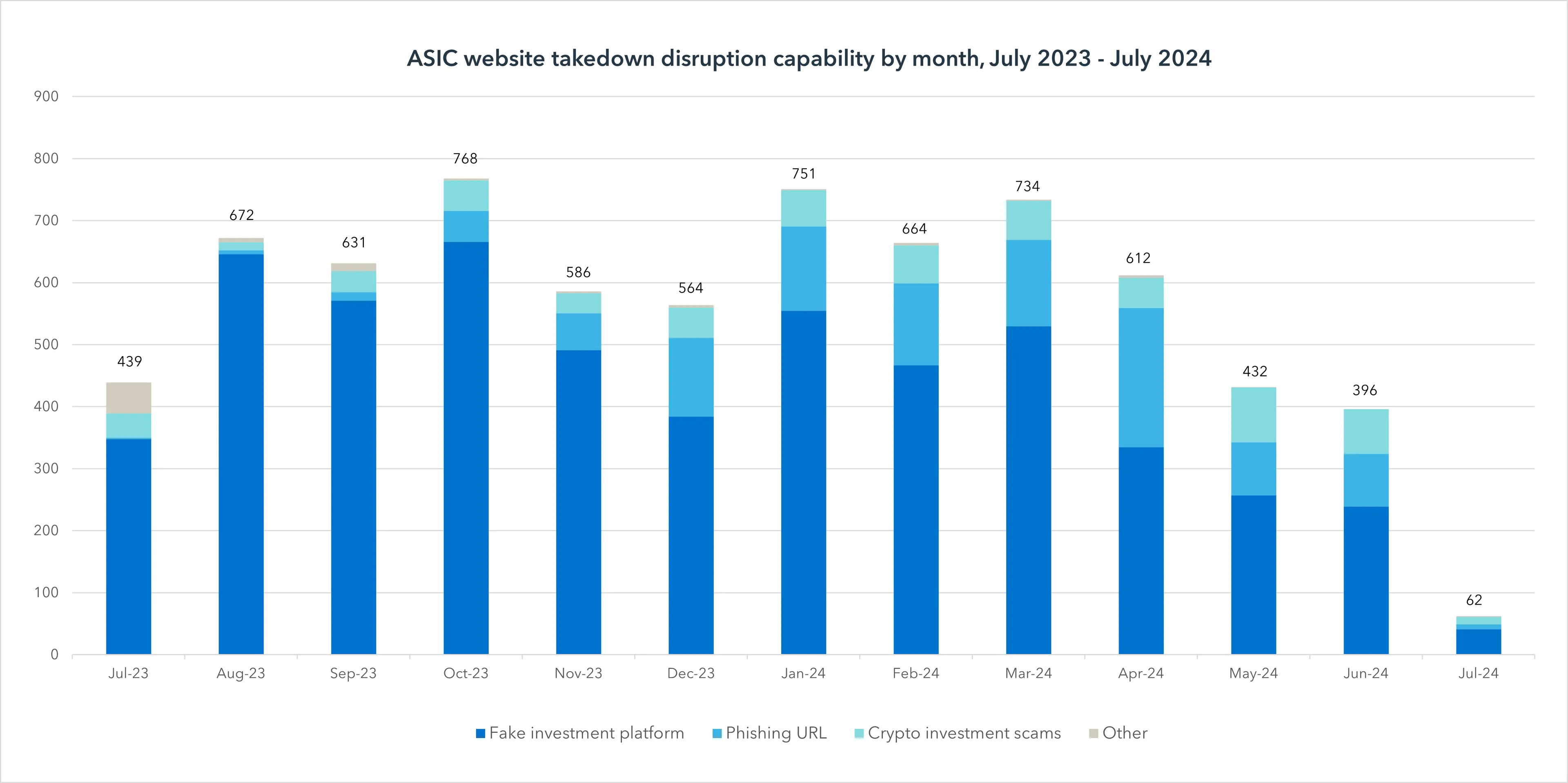Australia's financial markets conduct regulator, ASIC, revealed Sunday that it coordinated the removal of more than 600 crypto scams in the last year as part of a wider effort to disrupt online investment scams targeting billions in Aussie savings.
The Australian Securities and Investments Commission said it has helped take down 5,530 fake investment platform scams, 1,065 phishing scam hyperlinks, and 615 crypto investment scams.
It's estimated that, collectively, those scams resulted in $1.3 billion in losses last year, propagated via fake news articles and deepfake videos of local public figures.
"ASIC reminds all consumers to remain vigilant to social media hyperlinks that promote online trading and cryptocurrency investments," the regulator said in a statement.
An average of 20 websites are said to be taken down daily, with scammers continuing to adapt and find new ways to lure victims, ASIC said.
ASIC refers suspicious websites to a third-party company that specializes in detecting and disrupting cybercrime.
Once a malicious activity is confirmed, the takedown process begins, involving identifying relevant parties who can assist in taking the attack offline.
The targeted websites often include fake or imposter entities offering investment scams to Australians, such as fraudulent trading platforms and cryptocurrency investment scams.

In one instance, ASIC said it received an investment scam report from an Australian consumer after being duped by an online crypto scam, falsely claiming that it was internationally regulated and had billions of dollars in trading volume.
"The take-down occurred an hour after ASIC referred the website to the takedown provider," ASIC said. "Other potential investors were warned by ASIC issuing a warning through its investor alert list."
While there was a spike in crypto-related scams around the time of Bitcoin's halving event in April, data provided by the regulator shows there has been a decline month-over-month.
That has largely tracked global trends, with Chainalysis revealing in January, there had been a 29% drop in crypto scams last year.
The blockchain analysis firm said last week that crypto criminals have begun shifting their focus from decentralized platforms to centralized exchanges, employing advanced social engineering tactics in increasingly sophisticated attacks.
 decrypt.co
decrypt.co
